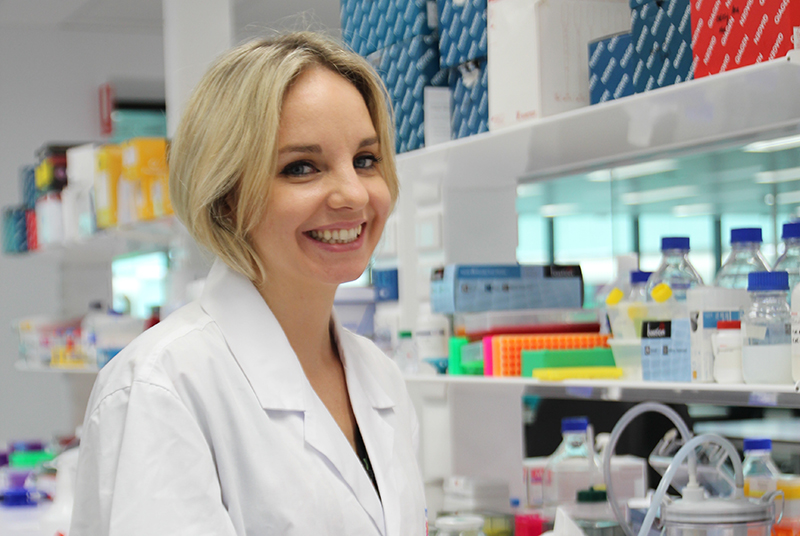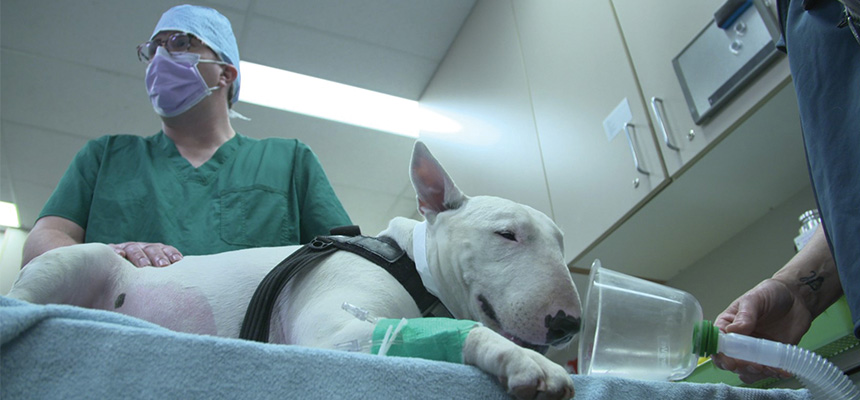Search

News & Events
Funding partnership to uncover new brain cancer treatments for kidsThe Robert Connor Dawes Foundation has joined forces with the Ethan Davies Fellowship to co-fund a The Kids Research Institute Australia initiative aimed at uncovering new treatments for aggressive childhood brain tumours.

News & Events
The Kids researchers share in $1.75m ACRF grant for cancer researchThree The Kids researchers are collaborating on a cancer research project that has been awarded a $1.75mill grant by the Australian Cancer Research Fund.
Research
Aging of preleukemic thymocytes drives CpG island hypermethylation in T-cell acute lymphoblastic leukemiaCancer cells display DNA hypermethylation at specific CpG islands in comparison to their normal healthy counterparts, but the mechanism that drives this so-called CpG island methylator phenotype (CIMP) remains poorly understood. Here, we show that CpG island methylation in human T-cell acute lymphoblastic leukemia (T-ALL) mainly occurs at promoters of Polycomb Repressor Complex 2 (PRC2) target genes that are not expressed in normal or malignant T-cells and which display a reciprocal association with H3K27me3 binding.
Research
Deciphering the Immunological Phenomenon of Adaptive Natural Killer (NK) Cells and Cytomegalovirus (CMV)Natural killer (NK) cells play a significant and vital role in the first line of defense against infection through their ability to target cells without prior sensitization. They also contribute significantly to the activation and recruitment of both innate and adaptive immune cells through the production of a range of cytokines and chemokines. In the context of cytomegalovirus (CMV) infection, NK cells and CMV have co-evolved side by side to employ several mechanisms to evade one another.
Research
BRAF-mediated brain tumors in adults and children: A review and the Australian and New Zealand experienceThe mitogen-activated protein kinase (MAPK) pathway signaling pathway is one of the most commonly mutated pathways in human cancers. In particular, BRAF alterations result in constitutive activation of the rapidly accelerating fibrosarcoma-extracellular signal-regulated kinase-MAPK significant pathway, leading to cellular proliferation, survival, and dedifferentiation.
Research
Delivery of PEGylated liposomal doxorubicin by bispecific antibodies improves treatment in models of high-risk childhood leukemiaHigh-risk childhood leukemia has a poor prognosis because of treatment failure and toxic side effects of therapy. Drug encapsulation into liposomal nanocarriers has shown clinical success at improving biodistribution and tolerability of chemotherapy. However, enhancements in drug efficacy have been limited because of a lack of selectivity of the liposomal formulations for the cancer cells.
Research
Implementation of DNA Methylation Array Profiling in Pediatric Central Nervous System Tumors: The AIM BRAIN Project: An Australian and New Zealand Children's Haematology/Oncology Group StudyDNA methylation array profiling for classifying pediatric central nervous system (CNS) tumors is a valuable adjunct to histopathology. However, unbiased prospective and interlaboratory validation studies have been lacking. The AIM BRAIN diagnostic trial involving 11 pediatric cancer centers in Australia and New Zealand.

Associate Professor Lesterhuis said the gel, developed with the help of chemists at The University of Western Australia, could revolutionise the way solid tumours were treated.
Research
‘Torn in two’: Experiences of Mothers Who Are Pregnant when Their Child Is Diagnosed With CancerMothers of children diagnosed with cancer have been shown to experience high rates of psychological distress and poor physical health. Pregnancy further increases the healthcare needs of mothers due to the marked physiological changes and psychological adaptations.
Research
A novel skin cancer prevention strategy: Preservice teachers' perceptions of a sun safety intervention and experiences in schoolsTeachers play a vital role in developing children's sun protection routines however upskilling preservice teachers (PSTs) while at university has not yet been trialled as a targeted skin cancer prevention strategy. Hence, this study investigated PSTs perceptions and experiences of sun safety following a brief pilot intervention and placement in primary schools in Western Australia.
